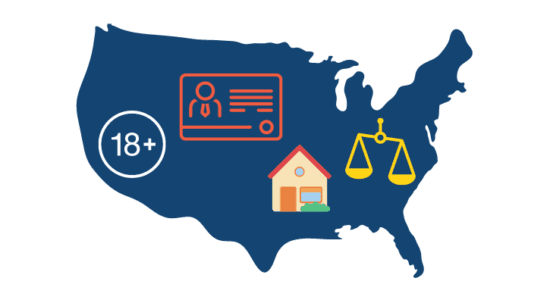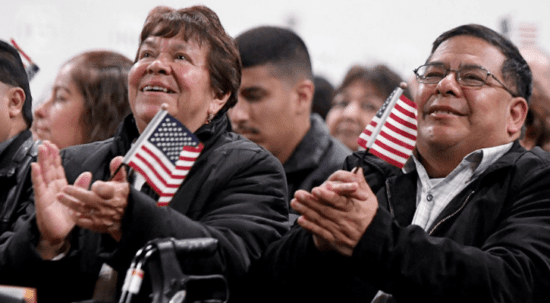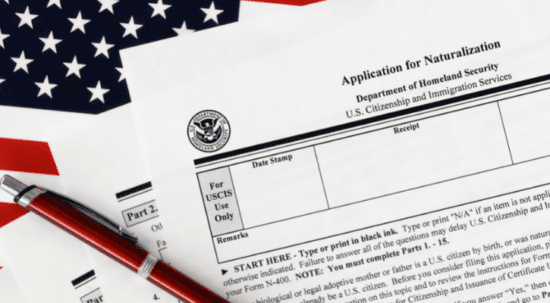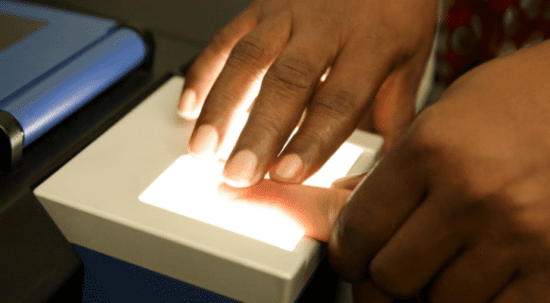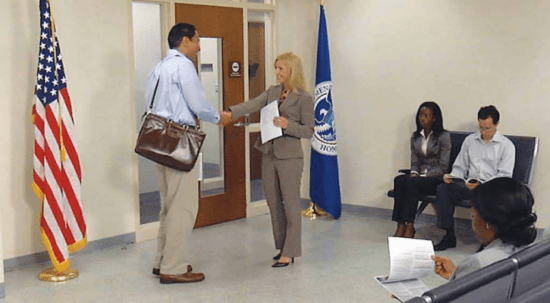Naturalization ceremony
The naturalization ceremony is the final step in the U.S. citizenship process. If your naturalization application is approved, you will attend a ceremony to:
- Take the Oath of Allegiance
- Return your permanent residence card (Green Card)
- Receive your Certificate of Naturalization
When and where
You will receive an appointment notice with the date, time, and location of your naturalization oath ceremony. Sometimes, the oath ceremony will happen on the same day as your naturalization interview. USCIS holds naturalization ceremonies at least once a month.
The oath ceremony will usually happen at a USCIS office at the same place you had your naturalization interview. Some ceremonies may take place in different settings, such as public parks, schools, libraries, museums, and historic sites.
Can I reschedule my appointment?
If you cannot attend your appointment, you can ask your local USCIS office to reschedule it. You will need to return your appointment notice with a letter explaining why you can’t attend your scheduled ceremony.
What to bring
Your appointment notice Form N-445 will have instructions. You should bring:
- Your appointment notice
- Your Green Card (permanent resident card)
- Your reentry permit or refugee travel document
- Other documents requested in your appointment notice
| Be sure to complete the questionnaire on the appointment notice, Form N-445. It asks questions about changes to your eligibility since your naturalization interview. |
Can I bring a guest?
Yes, you can bring a guest. You are welcome to invite family and friends to your oath ceremony. Check for any restrictions for your ceremony ahead of time, such as how many guests you can bring.
What if I don’t have my Green Card anymore?
You do not have to return your permanent resident card if the USCIS officer waives this rule at your naturalization interview. This may be waived if:
- You were not given a Green Card because of your military service
- You show proof you lost your permanent resident card
What should I wear?
USCIS asks you to dress respectfully for the oath ceremony. It is recommended that you do not wear jeans, shorts, or flip-flops if you can.
What to expect
Check-in
During the check-in, you will show your appointment notice to a USCIS officer when you arrive at the field office. The officer will check your answers to the questionnaire and confirm that you can take the Oath of Allegiance. You will then give up your Green Card and travel documents.
The officer will then hand you the following items:
- Welcome packet
- American flag
- Citizen’s Almanac
- Declaration of the Independence
- U.S. Constitution
The ceremony
Naturalization ceremonies may be different at each field office. Generally, a group of applicants will attend a naturalization ceremony at the same time. An immigration officer or judge will play a series of videos throughout the ceremony. Guest speakers will deliver keynote remarks at the beginning and end of the ceremony.
Generally, during the oath ceremony, you will take the Oath of Allegiance. You will have to stand, raise your right hand, and recite the Oath of Allegiance. You will receive your naturalization certificate at the end of the ceremony.
The Oath of Allegiance
The Oath of Allegiance is a formal promise you have to take before you can become a U.S. citizen.
“I hereby declare, on oath, that I absolutely and entirely renounce and abjure all allegiance and fidelity to any foreign prince, potentate, state, or sovereignty, of whom or which I have heretofore been a subject or citizen; that I will support and defend the Constitution and laws of the United States of America against all enemies, foreign and domestic; that I will bear true faith and allegiance to the same; that I will bear arms on behalf of the United States when required by the law; that I will perform noncombatant service in the Armed Forces of the United States when required by the law; that I will perform work of national importance under civilian direction when required by the law; and that I take this obligation freely, without any mental reservation or purpose of evasion; so help me God.”
You do not need to memorize the Oath of Allegiance. You will be given the words to read at the ceremony.
When you take the Oath of Allegiance, you promise to:
- Support the U.S. Constitution and laws
- Give up loyalty to any other nation
- Give up any familial or nobility titles
- Serve in the U.S. military when required
- Work for the U.S. civil service when required
An immigration officer or judge will administer the Oath of Allegiance in English. You can bring an interpreter with you if you need one. You will have to stand, raise your hand, and repeat the oath out loud.
Can I make changes to the oath?
USCIS allows certain modifications and waivers to the Oath of Allegiance for personal, religious, or medical reasons.
The wording of the oath may be changed to exclude military and religious commitments. You can ask to exclude any of the following statements:
- Bearing arms on behalf of the United States if required by law
- Performing noncombatant service in the U.S. armed forces when required by law
- So help me God
- On oath (you can say the words “solemnly affirm” instead)
You can ask for modifications or a waiver at your naturalization interview.
Does everyone have to take the oath?
Yes, unless you meet one of the following exceptions:
- Children under 14 years of age are not required to take the Oath of Allegiance.
- USCIS may also waive the oath for people who cannot understand its meaning due to a disability.
The Certificate of Naturalization
You will receive a certificate after you have taken the Oath of Allegiance. The Certificate of Naturalization is official proof of your U.S. citizenship. You can use your naturalization certificate to apply for a U.S. passport.
This is an important document and is expensive to replace. Keep it in a safe place.
Next steps
Congratulations on becoming a U.S. citizen!
It is recommended you update your records with the Social Security Administration and Department of Motor Vehicles. You can also:
| You should have access to voter registration services at the naturalization ceremony. You can fill out and submit your voter registration application there. |
The information on this page comes from USCIS, USA.gov, and other trusted sources. We aim to offer easy to understand information that is updated regularly. This information is not legal advice.

